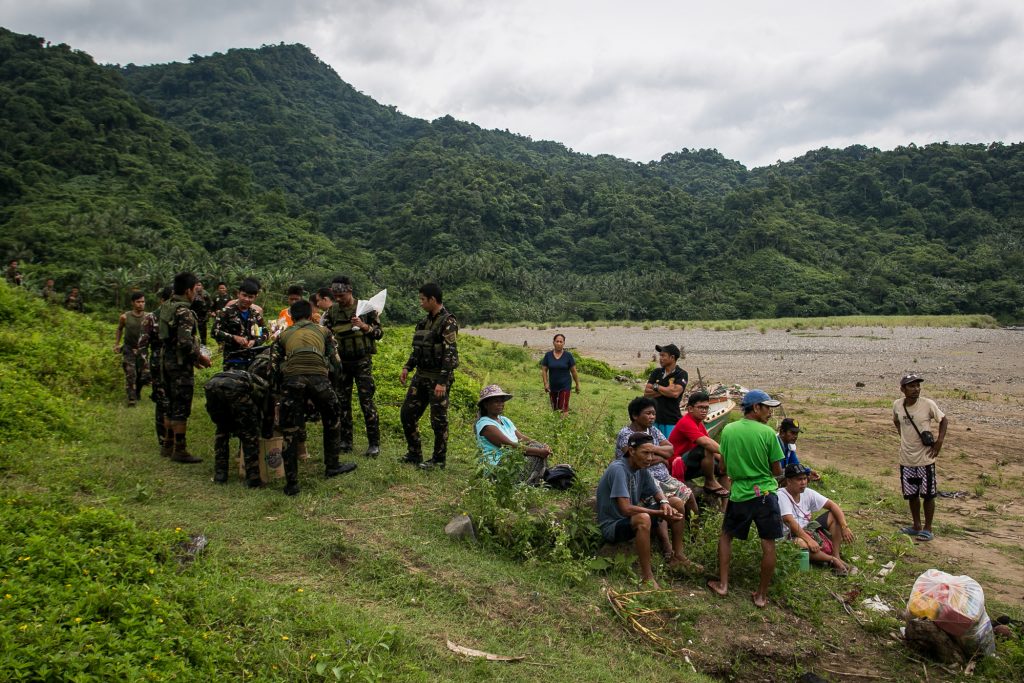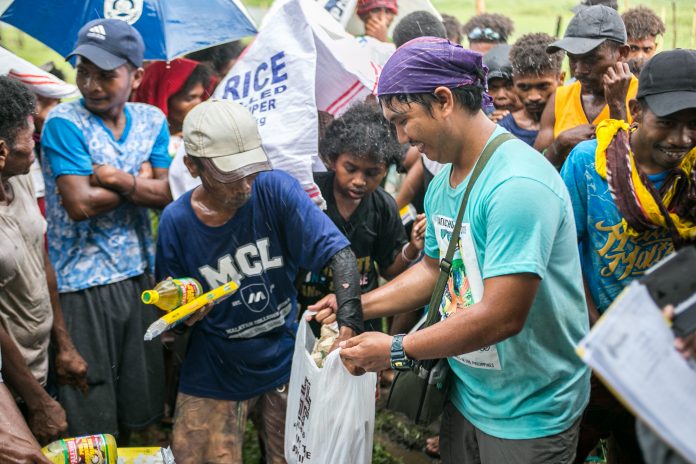Faith-based and aid organizations in the Philippines are worried over a provision in the country’s new Anti-Terrorism Law that would “constrict the space” for helping the poor.
The groups said the measure “gives broad powers to the implementors of the law in selecting which groups can provide aid” to communities in times of crisis and calamities.
Kim Leduna of the Citizen Disaster Response Center said the provision goes against the “humanitarian imperative and independence of aid providers.”
Section 13 of the law states that humanitarian activities that are undertaken by “state-recognized impartial” humanitarian partners or organizations “do not fall within the scope” of the section, which punishes a person or an organization that provides aid to a terrorist individual or group.
Loreine dela Cruz, executive director of the Disaster Risk Reduction Network-Philippines, said many humanitarian organizations have been targets of harassment and red-tagging by authorities in recent years.
She said the provision poses a danger because state forces can easily accuse a poor farming community or a tribal village as supporters of terrorists or a humanitarian organization as a terror group without due process.
“It is not uncommon that many of our member organizations, which are duly recognized by the state, experience harassment, discrimination, and red-tagging in rural areas riddled with conflict,” she said.
Dela Cruz said humanitarian actors “do not need policies and laws that will only authorize further abuses, sow fear and terror that are already realities on the ground.”
In November last year, church and aid organizations, including the Citizen’s Disaster Response Center, the National Council of Churches in the Philippines, Oxfam Philippines, and a local Caritas organization, were tagged as communist front organizations.
During a congressional inquiry, the Armed Forces of the Philippines presented a list of organizations that allegedly “wittingly or unwittingly” provide funds to the communists.
Also included are Caritas Australia, Caritas Austria, Caritas Belgium, Caritas Switzerland, Save the Children Foundation, Bread for the World, the Swedish Red Cross, Mercy Relief, and several other organizations.
Leduna said the provision in the new law “is indicative of disregard for legitimate concerns of marginalized communities and denial of immediate assistance for those in need.”
She said that “now more than ever” assistance and protection must be made available to all those in need “without the threat of politicization.”
Leduna said democratic spaces and autonomy are “enshrined” in the Philippine Constitution for civil society organizations.
Limiting that space “would undermine future development policies, programs, and gains that are grounded on the basic needs of the most vulnerable.”

The Philippine Misereor Partnership Inc, a faith-based network of more than 250 humanitarian and civic organizations, urged the government to repeal the new law.
Yolanda Esguerra, national coordinator of PMPI, said the law will “further assault whatever democracy is left in the country.”
“Instead of limiting the democratic space” for humanitarian aid providers, Esguerra said the government must “recognize the vital role” of these organizations.
The humanitarian and development arm of the Catholic Church in the Philippines vowed to lead the campaign to repeal the Anti-Terrorism Act of 2020.
Jing Rey Henderson, communications officer of Caritas Philippines, said the organizaiton will actively campaign “to ensure that this battle goes to the top court and be repealed.”
“We have received overwhelming support from our dioceses, parishes, and other religious institutions to join us in our call to protect our democracy,” she said.
On July 3, President Rodrigo Duterte signed Republic Act 11479, known as the Anti-Terrorism Act of 2020.
The law grants sweeping police state powers, including the authorization of warrantless wiretapping and surveillance, and warrantless arrests for up to 24 days of anyone accused by a presidentially-appointed commission of “terrorism.”
On July 7, four separate petitions, consolidated into a single case, were filed before the Supreme Court challenging the constitutionality of the new law and calling for a Temporary Restraining Order on its implementation.
The Court has given the executive and legislative branch 10 days to prepare a response.









